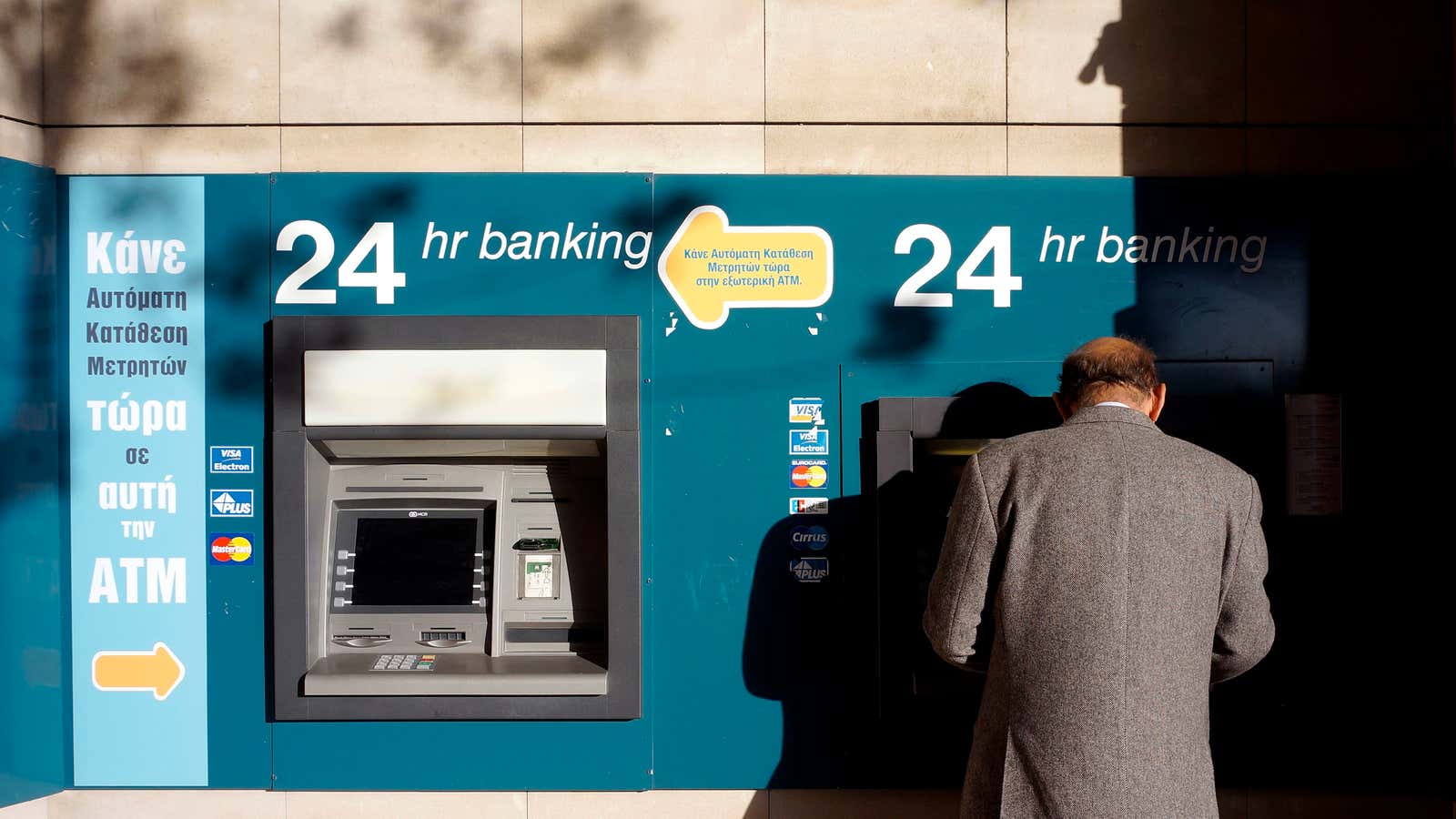Cyprus has finally reached a deal with euro zone policymakers and the IMF. But although this solution will stop Cyprus from defaulting, printing a new currency, and leaving the euro, there are plenty of people who are going to be cursing this deal.
Losers
Everyday Cypriots, who will probably face years of recession and strict austerity policies imposed by the troika.
High-rolling Laiki savers whose accounts will be frozen, with an as-yet undetermined portion seized to pay for the bank’s losses. Uninsured Bank of Cyprus account holders may also be on the hook to some extent.
Small-fry Russians: Major oligarchs mostly used Cyprus as a conduit, rather than a destination for funds, and those with political leverage likely got their cash out of Laiki in time. Who’s left? ”Smaller savers and entrepreneurs,” according to Reuters.
Reporters in Europe who had to stay up until 4 am to have their questions dodged by IMF director Christine Lagarde.
The free flow of money in Europe: For an undetermined amount of time, Cyprus will institute capital controls—the first in the history of European monetary union—to prevent more money from leaving the country.
Democracy: More than 67% of Cypriots would rather leave the euro and tighten relations with Russia. The deal sealed Sunday night won’t require parliamentary approval.
Winners
Cypriot bank customers—except the big ones at Laiki. The deal will scrap a controversial proposed tax on all Cyprus bank accounts, instead concentrating the pain on Laiki bondholders and account holders with more than 100,000 euros deposited.
Northern euro zone policymakers who succeeded in getting Cypriots to pay up in exchange for a bailout.
Portugal, Ireland, Italy, Greece and Spain which will (probably) not face immediate bank runs, as they might have in the event of across-the-board seizures of Cypriot accounts.
The European Central Bank, which won’t have to make good on its threat to cut off funds to Cyprus’s failing banks.
Latvia, Cayman Islands, Luxembourg, and other tax havens. All that Russian money has to go somewhere.
